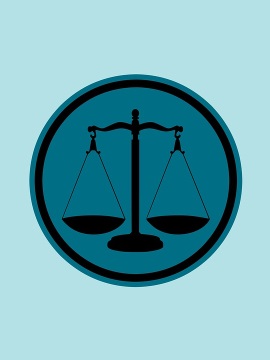What Is Evidence?
James C. Rocks
Once, when debating in forum, I was asked what evidence was i.e. what is a definition for evidence ... I admit I was shocked, frankly I had never even given the matter any though before, so I sat back to give the matter some thought.
 "Evidence" is anything that may support an assertion or increase its likelihood of being correct. All assessment of evidence is a form of probability, an interpretation, and is dependent upon the observer or interpreter.
In common usage the word "observe" simply means to see, to view something, but in scientific terms an observation (or rather a relevant observation) is a piece of evidence that has been agreed by all relevant parties to be correctly and accurately associated with the assertion which it is claimed to be. It is important to note that the use of the word "observation" in a scientific sense can refer to data that has not been directly observed, for example if the population of the United States is said to be around 350 million it is understood that that is backed up by population data … no single individual is capable of directly observing all 350 million individuals simultaneously.
An observation should be regarded evidence when it is:
"Evidence" is anything that may support an assertion or increase its likelihood of being correct. All assessment of evidence is a form of probability, an interpretation, and is dependent upon the observer or interpreter.
In common usage the word "observe" simply means to see, to view something, but in scientific terms an observation (or rather a relevant observation) is a piece of evidence that has been agreed by all relevant parties to be correctly and accurately associated with the assertion which it is claimed to be. It is important to note that the use of the word "observation" in a scientific sense can refer to data that has not been directly observed, for example if the population of the United States is said to be around 350 million it is understood that that is backed up by population data … no single individual is capable of directly observing all 350 million individuals simultaneously.
An observation should be regarded evidence when it is:
Discussion
An "assertion" is something we can say about the universe in which we live or is relevant to some state of that universe. For the purpose of this discussion I am interested only in assertions as they pertain to the real (natural or materialistic) universe.
 "Evidence" is anything that may support an assertion or increase its likelihood of being correct. All assessment of evidence is a form of probability, an interpretation, and is dependent upon the observer or interpreter.
In common usage the word "observe" simply means to see, to view something, but in scientific terms an observation (or rather a relevant observation) is a piece of evidence that has been agreed by all relevant parties to be correctly and accurately associated with the assertion which it is claimed to be. It is important to note that the use of the word "observation" in a scientific sense can refer to data that has not been directly observed, for example if the population of the United States is said to be around 350 million it is understood that that is backed up by population data … no single individual is capable of directly observing all 350 million individuals simultaneously.
An observation should be regarded evidence when it is:
"Evidence" is anything that may support an assertion or increase its likelihood of being correct. All assessment of evidence is a form of probability, an interpretation, and is dependent upon the observer or interpreter.
In common usage the word "observe" simply means to see, to view something, but in scientific terms an observation (or rather a relevant observation) is a piece of evidence that has been agreed by all relevant parties to be correctly and accurately associated with the assertion which it is claimed to be. It is important to note that the use of the word "observation" in a scientific sense can refer to data that has not been directly observed, for example if the population of the United States is said to be around 350 million it is understood that that is backed up by population data … no single individual is capable of directly observing all 350 million individuals simultaneously.
An observation should be regarded evidence when it is:
- Compatible with the assertion … it is pointless to observe that trees are tall and assert that that is why they are green as the observation has no direct relevance to the assertion.
- Not compatible with other assertions ... it is further pointless to observe that trees are tall and assert that that is why they are green when the (more logical) assertion that chlorophyll (abundant in the leaves of trees) better explains why the tree is green.
Conclusion
When making an assertion about the state of our universe it is important to establish that the observational data used to justify that assertion is both fact (true, verifiable), compatible with the assertion and incompatible with others competing assertions.
For instance, when someone claims that the diversity (observation) around us can only be explained by the actions of deity (assertion) not only is there no observed link between deity and diversity (and indeed no observation of deity) but there exists (in the theory of evolution) a perfectly plausible assertion that is supported by a huge number of observations.
References
- "What Is Evidence", Yahouda Harpaz